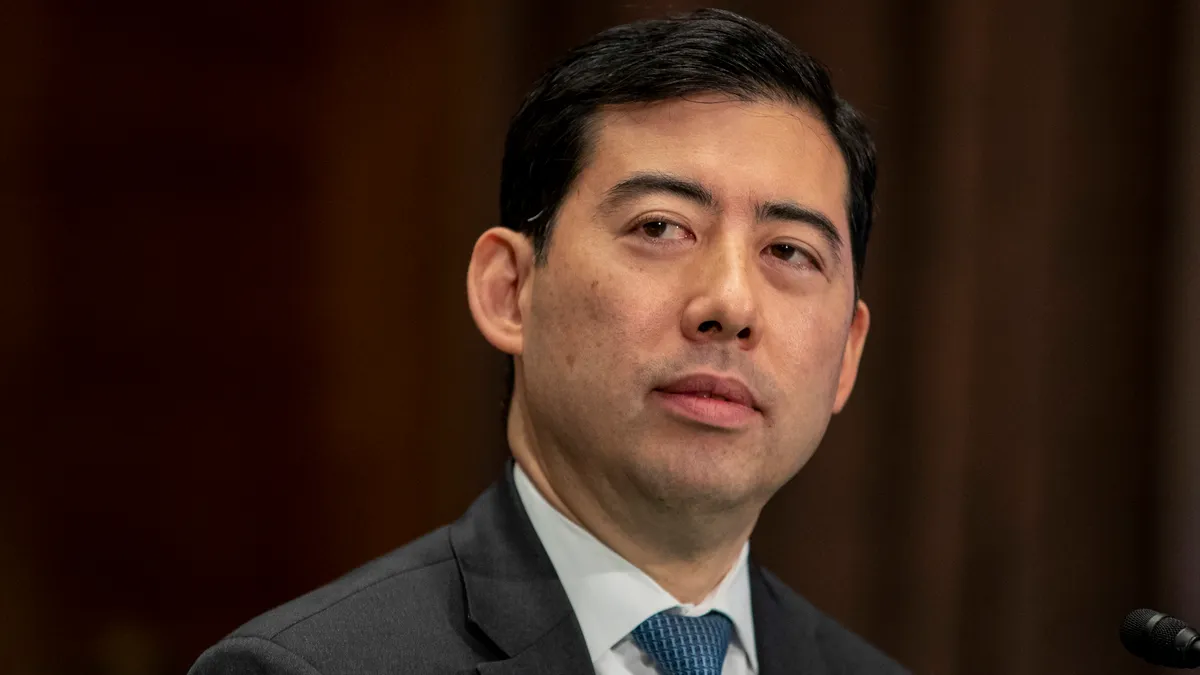Dive Brief:
- The Securities and Exchange Commission’s recently approved climate disclosure rule was subject to further criticism from Commissioner Mark Uyeda — who voted against the rule last month — during the agency’s “SEC Speaks” event on Tuesday.
- Uyeda, a Republican appointed by President Joe Biden, said the rule’s “fundamental flaw” was that it “mandates disclosures not financially material to investors,” and seeks to “alter the behavior of public companies in a manner that serves political interests that have otherwise failed to achieve such change through the legislative process.”
- The commissioner’s comments came during the agency’s annual two-day forum, sponsored by the Practising Law Institute, which offered insight into the SEC’s priorities for the upcoming year. They mirrored Uyeda’s March 6 testimony opposing the climate rule, where he said the agency had “ventured out of its lane” by asking for climate-related disclosures.
Dive Insight:
Uyeda said Tuesday that the SEC was extending its “narrow statutory remit” by seeking to “broadly regulate” public companies’ operating activities under the guise of disclosure requirements. The commissioner added that national economic or political policy beyond the SEC’s authority should be addressed by Congress, not financial regulators.
Uyeda said the agency took “great lengths to mask the climate rule’s intent with superficial references to financial materiality,” though SEC Chair Gary Gensler has maintained the climate rule is well within the agency’s authority. During his statement preceding the March 6 vote, Gensler said the rule was “well within the agency’s mandate” because it is solely focused on disclosures to investors and was grounded in materiality.
However, Uyeda also raised concerns with how the agency defined “materiality” earlier this week. He said the disclosures the rule proposed went beyond serving investors and also catered to other economic actors, such as lenders, suppliers and customers who took such knowledge into account when spending money. Uyeda said this method was “inconsistent with the Commission’s historical approach.”
“Public company disclosures are intended for investors, and those disclosures should be material to those investors,” Uyeda said in his testimony.
Commissioner Hester Peirce, who joined Uyeda in voting against the climate rule last month, also criticized the agency’s rulemaking process at SEC Speaks. Though Peirce did not outrightly mention the climate rule Tuesday, she noted that the agency’s “very broad proposals, unreasonably short comment periods, pared back final rules with substantial elements on which the public has not commented, and little SEC engagement in implementation discussions” was the reason behind the “dwindling” engagement the agency had with the public.
The SEC is currently battling nine petitions challenging the rule, all of which have been consolidated to the U.S. Eighth Circuit of Appeals.











